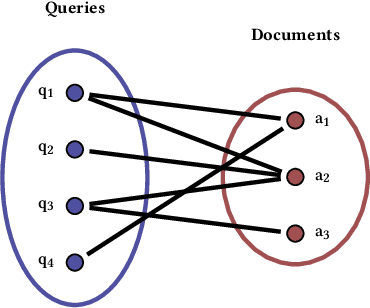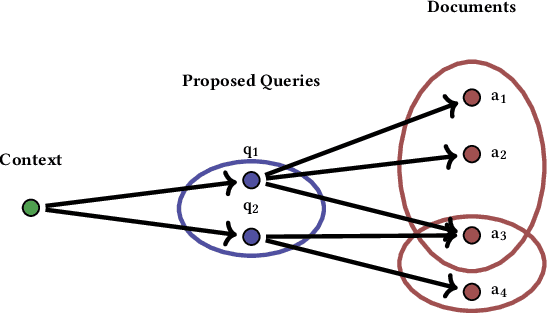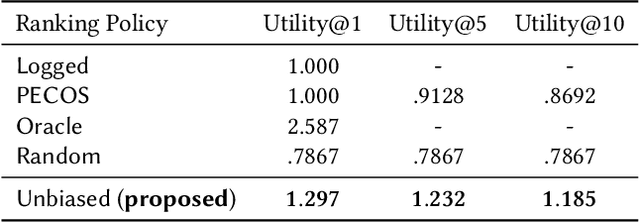Counterfactual Learning To Rank for Utility-Maximizing Query Autocompletion
Paper and Code
Apr 22, 2022



Conventional methods for query autocompletion aim to predict which completed query a user will select from a list. A shortcoming of this approach is that users often do not know which query will provide the best retrieval performance on the current information retrieval system, meaning that any query autocompletion methods trained to mimic user behavior can lead to suboptimal query suggestions. To overcome this limitation, we propose a new approach that explicitly optimizes the query suggestions for downstream retrieval performance. We formulate this as a problem of ranking a set of rankings, where each query suggestion is represented by the downstream item ranking it produces. We then present a learning method that ranks query suggestions by the quality of their item rankings. The algorithm is based on a counterfactual learning approach that is able to leverage feedback on the items (e.g., clicks, purchases) to evaluate query suggestions through an unbiased estimator, thus avoiding the assumption that users write or select optimal queries. We establish theoretical support for the proposed approach and provide learning-theoretic guarantees. We also present empirical results on publicly available datasets, and demonstrate real-world applicability using data from an online shopping store.
 Add to Chrome
Add to Chrome Add to Firefox
Add to Firefox Add to Edge
Add to Edge